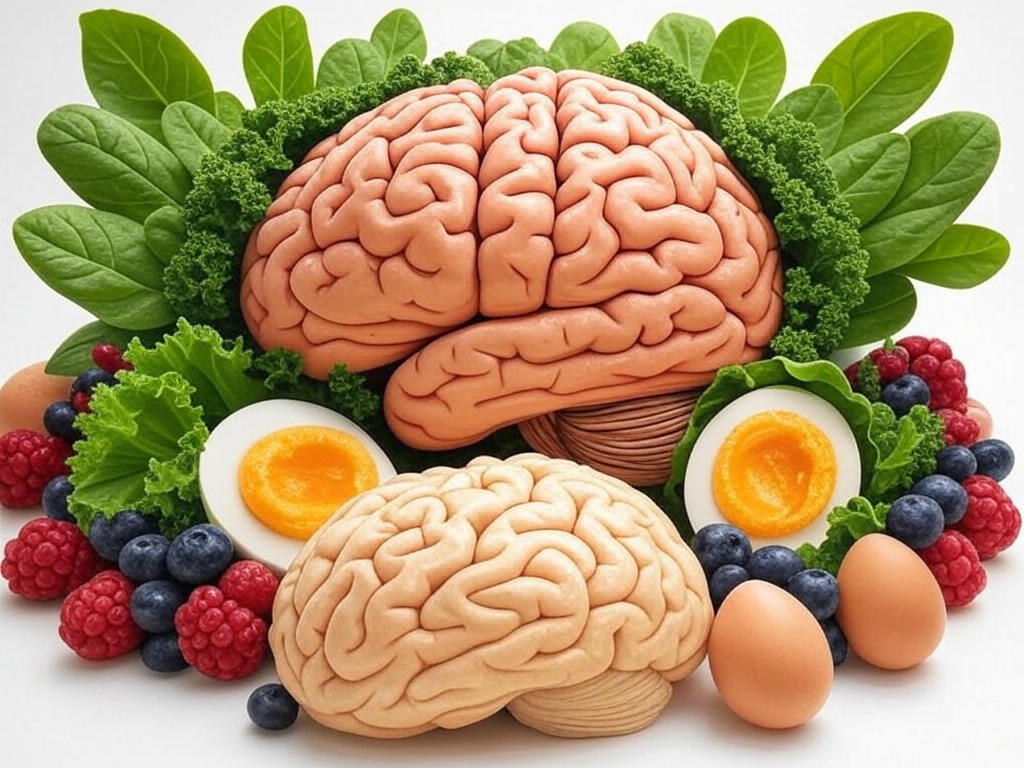
🧠 The Brain-Boosting Power of Vitamin K: How a Deficiency May Harm Memory and Learning
Share
🥬 Low Vitamin K May Be Sabotaging Your Brain—Here’s What Science Says
We often think of vitamin K in terms of blood clotting and bone health, but recent research now uncovers a powerful link between this essential nutrient and cognitive function.
In a 2025 study published in The Journal of Nutrition, scientists revealed that mice with a vitamin K-deficient diet experienced significant memory loss, reduced learning ability, and increased brain inflammation. This discovery opens new doors in the field of brain aging prevention and highlights why diet truly matters for mental sharpness.
🧪 The Study: What Happened to the Mice?
Researchers at the Jean Mayer USDA Human Nutrition Research Center on Aging (HNRCA) performed a six-month intervention on mice, splitting them into two groups:
-
One fed a standard diet
-
Another fed a low-vitamin K diet
The results were both surprising and alarming.
Key Findings:
-
Memory Impairment: Vitamin K-deficient mice struggled to recognize new objects in standard memory tests.
-
Slower Learning: In spatial learning exercises, they took longer to complete tasks.
-
Reduced Neurogenesis: The hippocampus, a region crucial for memory, showed fewer new brain cells.
-
Elevated Inflammation: Overactive microglia (the brain’s immune cells) were found, linked to chronic inflammation and age-related diseases like Alzheimer’s.
🧬 What Is Vitamin K and Where Can You Get It?
The study focused on menaquinone-4, a brain-specific form of vitamin K. While vitamin K is available in various forms, the most common dietary form is phylloquinone, found in:
-
🥗 Leafy greens: spinach, kale, broccoli, lettuce
-
🫒 Vegetable oils
-
🍇 Fruits: blueberries, figs
-
🍳 Eggs, meat, cheese, and soybeans
Despite being present in everyday foods, most people still don’t meet the recommended intake. That may be silently hurting their long-term brain health.
🧠 Why This Matters for Aging Brains
Experts predict that millions more adults over 65 will develop age-related cognitive issues in the next decade. This study suggests vitamin K could play a crucial role in prevention by:
-
Supporting brain cell production
-
Reducing harmful inflammation
-
Enhancing memory and learning
According to lead researcher Tong Zheng, vitamin K appears to have a protective mechanism within the brain. “We're trying to understand that mechanism,” he said, “so we might one day target it directly.”
🥦 Skip the Supplements, Fix the Plate
While it may be tempting to grab a bottle of vitamin K supplements, the researchers urge a different approach.
“A healthy diet works,” says Dr. Sarah Booth, director of HNRCA. “People who eat more vegetables live longer and do better cognitively.”
By focusing on whole foods and nutrient diversity, you naturally support your brain without the risks or limitations of synthetic supplementation.
🔮 Final Thoughts: Feed Your Brain Today for a Better Tomorrow
Vitamin K may just be the unsung hero of brain health. As the population ages, simple dietary choices—like adding a handful of spinach or a few blueberries to your meals—could mean the difference between cognitive clarity and decline.
🧠 Your brain deserves the best. Start feeding it right.